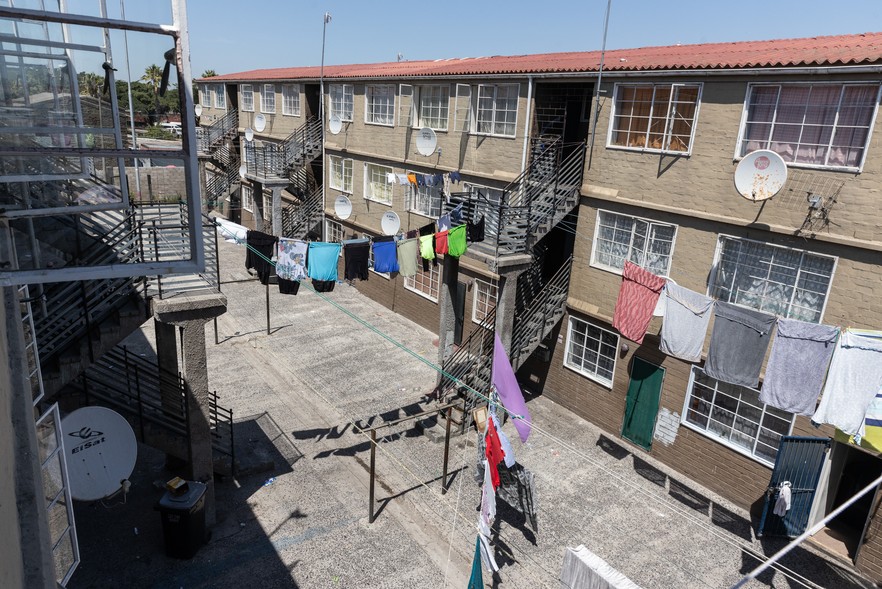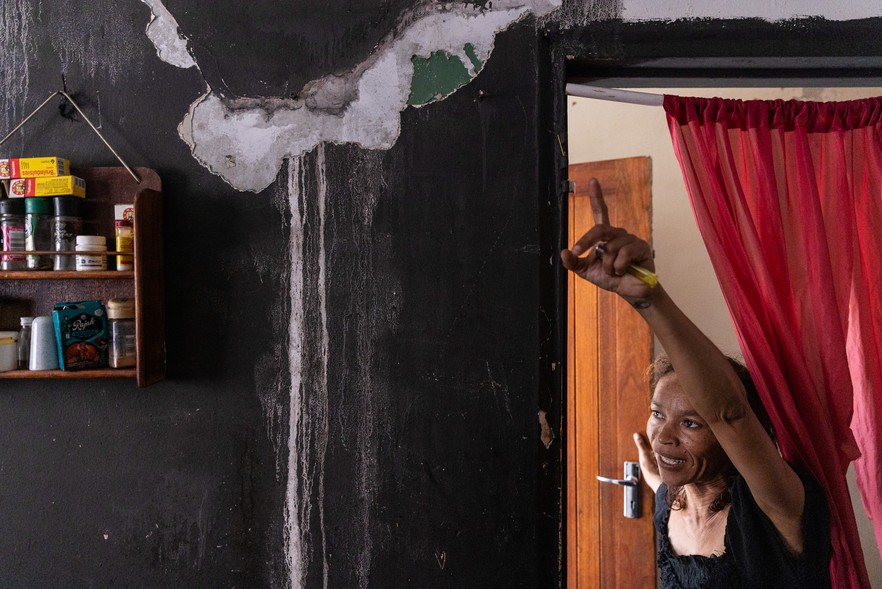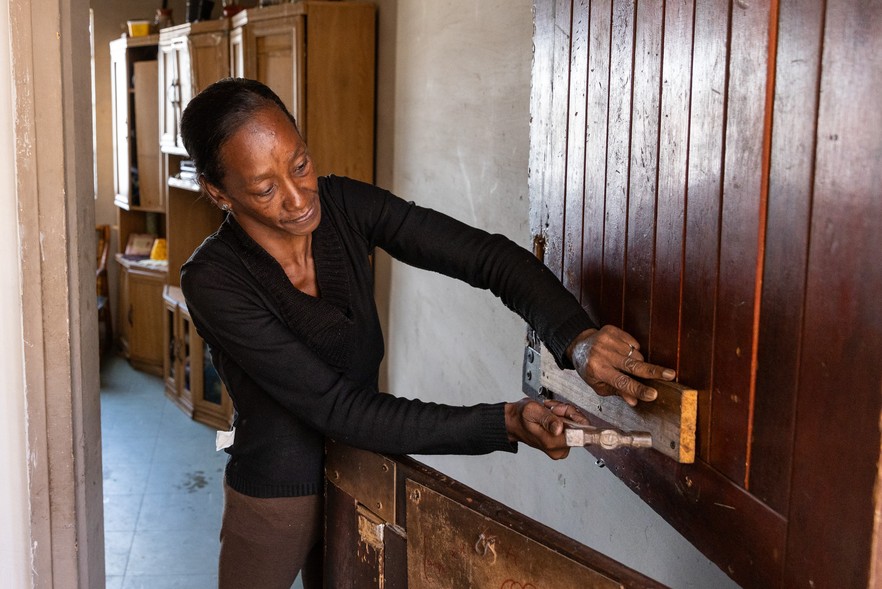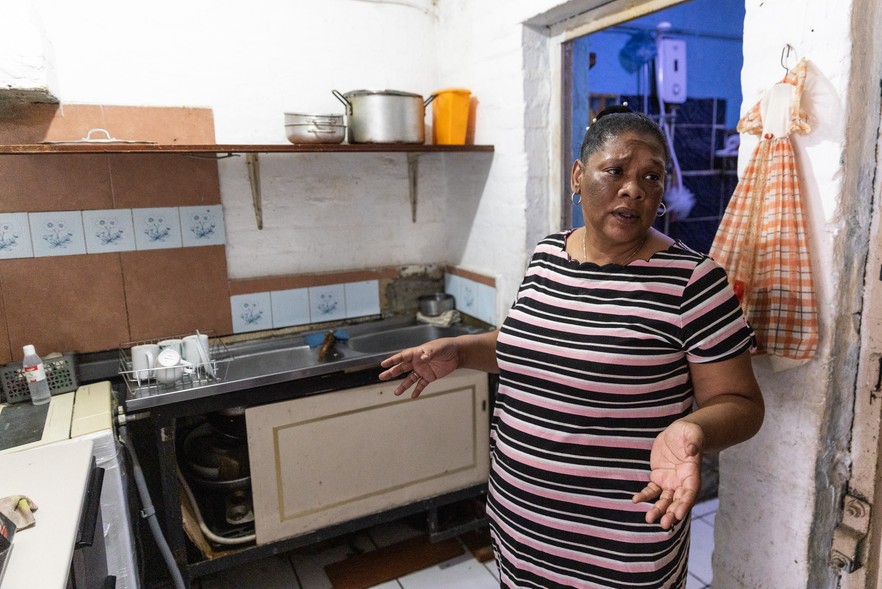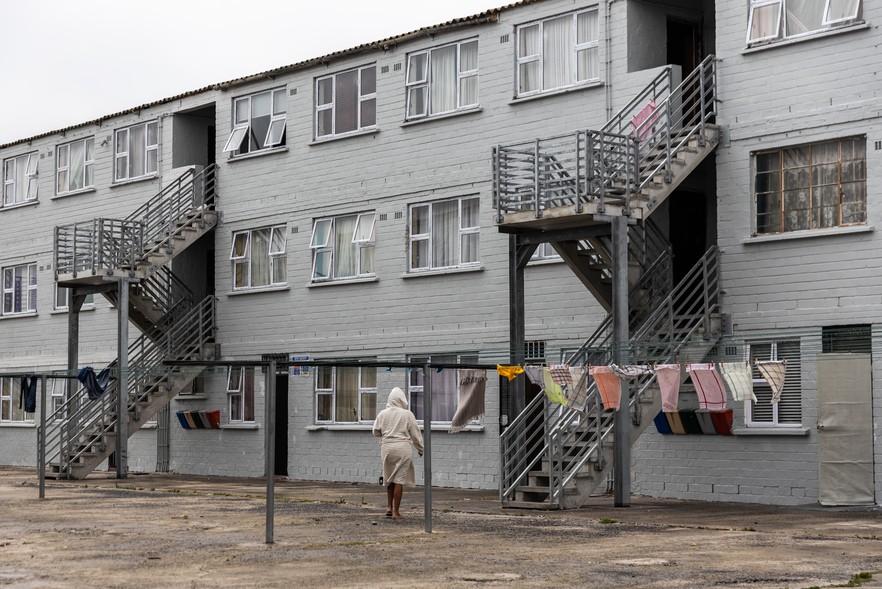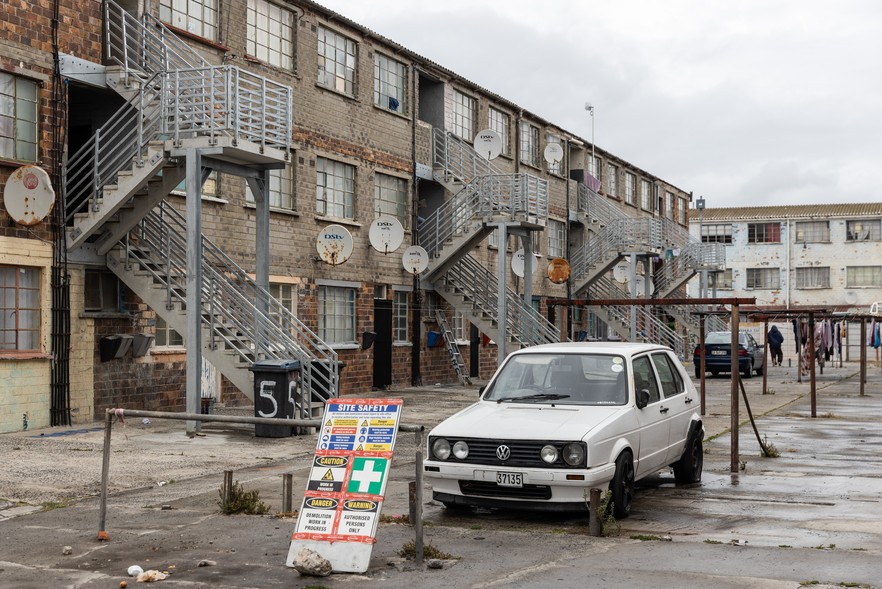In photos: Cape Town’s apartheid-era flats
More than R1.2-billion has been allocated over the next three years to maintain these blocks
This is Johanna Court in Manenberg, where doors and windows are broken, and roofs are leaking.
The City of Cape Town’s four-storey rental flats are home to more than 100,000 people on the Cape Flats.
The flats house mostly coloured families and were built under the apartheid government in the 1970s.
The City has been upgrading some of its 45,000 ageing units. The City has said that it prioritises repairs based on service requests received, safety and if there is an emergency. More than R1.2-billion has been allocated to maintenance over the next three years.
Uitsig
Uitsig is in the northern suburbs. Here the rental blocks of flats are commonly referred to as the Eleven Brothers or Elf Broers.
While a few flats there have gone through maintenance, the large majority of them remain in a poor state.
Resident Leandra Beukes points out where her wall was painted in her kitchen to cover the mould caused by a leaking roof.
“The last time the maintenance people were here was in August. The flats are cream and maroon, and some covered in graffiti of colourful pictures but largely gang names and markings. The staircases to most of the flats are old, crumbling with very little to no support.”
“As the tenants, we are never consulted when work is going to happen at the flats. We just see people one day doing light maintenance work on a few flats, like fixing pipes or painting. Then it is quiet again, until they reappear on another day,” said Joanne Jacobs.
According to Jacobs, the Eleven Brothers are more than 50 years old.
Visiting some of the tenants, Leandra Beukes, a mother of two, one of whom has special needs, has been living in her flat for 40 years. She showed GroundUp that she painted her kitchen wall black to cover the mould caused by her leaking roof.
“The last time the maintenance people were here was in August. They temporarily fixed a ceiling. Look at these lines going down the wall. Those are the prints left behind from the leaks,” said Beukes.
A few doors away from Beukes is Shireen Solomons. When we arrived, she had a hammer in hand and was trying to fix her broken front door. Solomons lives with four other people and has been living in her flat for 19 years.
Her flat has been without electricity since December after it tripped due to old wires. “I reported it, but I am yet to get it fixed. At the moment we rely on my neighbour for electricity,” she said.
Shireen Solomons hammering her broken front door.
Manenberg
Activist Roegshanda Pascoe lives in a flat on Pecos Walk in Manenberg. Her biggest problem, like Beukes, is mould on her walls due to a leak and the lack of proper ventilation. “Water seeps through the walls. When the municipal people come to fix it, it’s only a temporary solution.”
A drive away from Pascoe’s home, is a gated block called Johanna Court. According to Pascoe, a few years back a woman fell from one of the top floors after stepping on a loose step.
Some of the flats in Johanna Court have broken windows and the staircases are old.
Roegshanda Pascoe in her flat on Pecos Walk in Manenberg.
Lotus River and Lavender Hill
The flats we visited in Lotus River and Lavender Hill are currently being upgraded.
Some of the flats in both neighbourhoods have received a paint job, windows have been replaced, staircases have been upgraded and washing lines have been replaced.
Walking around both neighbourhoods, you can see paint peeling off the walls, broken staircases and broken washing lines. Then just next to those flats are newly refurbished flats with a fresh coat of paint with shiny new aluminium windows and staircases.
Keppel Court in Lavender Hill has new stairs and a fresh paint job.
Ward councillor William Akim said tenants had been living in the units for about 50 years. “Residents are excited about the work. I have had many complaints from tenants in the past regarding unstable steps, broken windows, roofs lifting and ceilings leaking.”
Tenant Haroon Nabbe, who has lived in his flat for 42 years, said his wife had injured her knee on one of the broken steps. He said he was happy with the maintenance and upgrades but was worried the job was rushed. Water is coming through my new window because it was not fitted correctly,” said Nabbe.
Dorothy Soetwater’s unit at Keppel Court was recently upgraded. When GroundUp visited Keppel Court, workers were finishing up the new staircases.
“I have been living here for 27 years. We have fought so long as tenants to get some upgrades and maintenance. We’ve sat in meetings, spoken to the ward councillor, and we’ve been up and down to the rent office,” said Soetwater.
Only the staircases at Selkirk Court have been renovated so far. It is unclear if any other renovations will be done.
Prioritising urgent repairs
According to Mayco Member for Human Settlements, Carl Pophaim, the City will be ramping up maintenance and upgrade work over the next several months.
“Since 2018, approximately R200-million has been spent on staircase upgrades and includes the repair and replacement of more than 1,300 priority staircases.”
Pophaim said that there is a huge demand for repairs at the City’s rental units. “We focus on critical, emergency work across the metro. The City uses rental income for maintenance. Due to the amount of work needed, the City has to be cautious about what it prioritises. The majority of service requests unfortunately involve the vandalism of units.”
An estimated 160,000 people currently benefit from the affordable rental public housing units managed by the City, said Pophaim.
Support independent journalism
Donate using Payfast

Don't miss out on the latest news
We respect your privacy, and promise we won't spam you.
Next: Volunteers collect data to mitigate effects of global heating in Tshwane
Previous: Health department fails to pay security contractor, leaving guards without salaries
© 2024 GroundUp. This article is licensed under a Creative Commons Attribution-NoDerivatives 4.0 International License.
You may republish this article, so long as you credit the authors and GroundUp, and do not change the text. Please include a link back to the original article.
We put an invisible pixel in the article so that we can count traffic to republishers. All analytics tools are solely on our servers. We do not give our logs to any third party. Logs are deleted after two weeks. We do not use any IP address identifying information except to count regional traffic. We are solely interested in counting hits, not tracking users. If you republish, please do not delete the invisible pixel.

